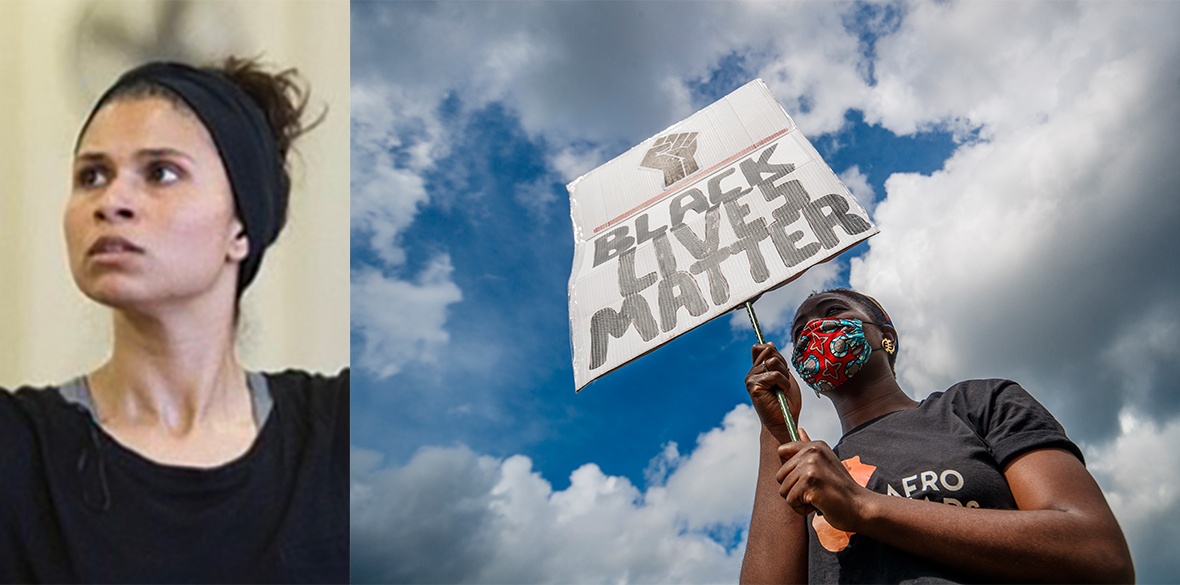This is the last article you can read this month
You can read more article this month
You can read more articles this month
Sorry your limit is up for this month
Reset on:
Please help support the Morning Star by subscribing here
WHEN I was asked to write this article, I didn’t think my opinion mattered. But, I realise, that’s part of the problem.
With years of experiencing what it’s like to be “othered,” when any opportunity arises that then affords you a bit of space, one is conditioned into feeling grateful, apologetic even, when the truth is I’m just as deserving as anyone else.
I often feel like Britain is really good at virtue signalling, imagining itself holding the moral high ground, camouflaging its antiquated attitudes, patting itself on the back over how it’s a bastion of tolerance, progressiveness and equality.
Yet recent events, including the Covid pandemic, Black Lives Matter protests and the three-year anniversary marking the Grenfell tragedy, have once again exposed the huge inequities that exist within our societies, while at the same time disclosing just how dependent we are on the very people it marginalises.
We know the arts are a powerful medium. They shape imaginations, affect hearts and minds, galvanise people, revolutionise thought, allows us to connect with ourselves and each other on a visceral, human level, build bridges, give us the space to feel free, to feel joy, to express pain and, more importantly as things currently stand, to heal.
I know I’m not asking anything new but as an artist, it’s only natural to interrogate what the artistic response will be to the social inequities recent events have exposed. How will we challenge those inequities?
How can we dismantle the status quo so it works for all of us? We need to find new ways of thinking, being, existing and practising.
For those of us who’ve been socially invisible for years, I’m beginning to realise that visibility in the arts isn’t enough because diversity as we understand it, can only go so far.
And institutions who imagine themselves as promoters of diversity, often use it as a smokescreen to disguise the inequality of opportunity that really exists beneath.
Why do institutions need to emphasise how “diverse” they are? Shouldn’t it be a given? Often when they do, it proves the opposite to be true.
There are those whose life has been one of privilege and yet for them equality for all somehow equates to their own “imagined” oppression.
It highlights a problem which starts with our colonial legacy. It recently came to light that in 2002 Boris Johnson wrote an article in the Spectator declaring that “The [African] continent may be a blot but it is not a blot upon our conscience … The problem is not that we were once in charge, but we are not in charge any more.”
That someone who has attained the highest political office of this country could, less than 20 years ago, still retain a superior colonial mindset, proves that we have not fully confronted our colonial past.
It’s why cycles of fascism still exist. I need not remind those reading this of the far-right thuggish counter-protests to BLM that recently took place.
In the same way that we need to decolonise our history, our education systems and our minds, the arts and our cultural institutions need to be part of that discourse.
Because from where I’m standing, colonialism never ended, it just morphed into other ways of being, and other forms of control, with more people than we would care to imagine widely believing that they have a right to be “in charge” by virtue of their perceived entitlement, and that anyone outside of that poses an existential threat.
“Diversity” is only surface level, while decolonisation could be the answer to creating meaningful systemic change.










